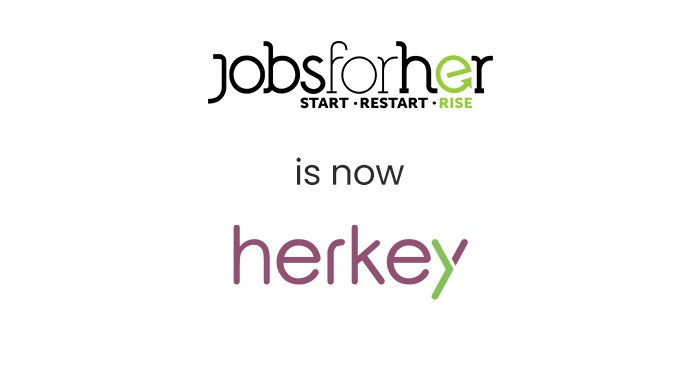A Career Change on Your Mind? 7 Things to Resolve Before You Take the Plunge.
- Kaajal A
- in
- Career Development, Working Women
- |
- 19 Jan 2020

Are you considering switching careers? Are you at a crossroads to decide between whether to stay in your current field or move to a new one? Do you feel that your skills are not utilized in your current career?
Perhaps you have found a new passion that prompted you to consider switching careers!
Changing careers is a big decision, and one with many possible outcomes and consequences.
So, even if you’ve spent a large chunk of your work years in Sales, Customer Service, HR, Banking, Finance, or any other profession, where you’ve worked the grind of entry-level jobs and labored your way up to management, a career change can still be successful.
In order to properly craft and execute your plan, you will need to do some serious self-evaluation. All you need to resolve are the following 7 things:
Find job opportunities for a new career, with JobsForHer
- Spend Time Self Analysing
What do you look forward to doing most, the moment you have some spare time on hand?
Start with a self-assessment of that. Write down and research the careers that interest you. Read up on the skills they require, the work culture, pay scales, etc. Even a chat with professionals in those fields will prove to be of significant guidance.
Then, hunt out simple career assessments/tests that will prove to be good indicators of what you could pursue. The options you arrive at will bear all potential for you to turn into your area of expertise.
Also, assess what this change will entail. Switching careers may mean beginning with entry-level job positions and lower pay scales. It may mean a change in work ethics, team culture, office environment, and more. Make sure you’ve worked out those changes in your head before you begin applying.
- Research and Prepare
Make certain that you have the knowledge or skills to offer possible solutions. For this, research the job roles you’re looking at and the companies offering those roles. Do your groundwork in regard to profiles of the decision-makers, company policies and work culture before you begin applying.
Then, hunt out the entry levels first. If you're looking at becoming a Project Manager, you may first want to look at ‘Project Coordinator’ openings. This will generally require less experience and serve as a stepping stone into the industry. Those are the kind of roles that someone changing a career — with newly-minted skills, but not necessarily experience — would likely fill first.
- What Do You Bring to The Table?
We all come with a unique combination of personality traits, skill sets, knowledge and experience. And the key to a successful change in career path is in being able to articulate and market your uniqueness. Additionally, you can leverage your previously acquired skills and knowledge to benefit your new career. Look for ways in which it translates into being beneficial to your new job role.
For example, if you have previously worked in the banking industry, with numbers, and now want to get into accounting, this previous experience would prove beneficial to your new employer.
So, mention these pointers on your resume, through an example or by simply stating it, and bring it up in your interview as well.
To transition smoothly into your new job, you will need the aptitude and knowledge it requires. The simplest way to do this is to make note of the desired skills that are commonly spelt across the job roles you’re browsing. Once you have a list of those skills, start looking at options to upgrade yourself with them. If you’re old-school, then maybe a classroom setup would work best. As for online courses, you’ll find plenty, if you prefer to study on your own.
Choose whatever works best for you.
For example, an industry like Technology or Banking requires you to be up to date with current technologies, versus soft skill training for Management and Training roles.
Your current network and networking abilities will be of great consequence at this juncture. Ask friends and family to connect you with anyone they know in the field or companies that interest you. Join related groups and attend their online and offline events, meetups, trade shows, etc., where you can engage with professionals.
People in your network may prove to be good reference points for job leads, advice and information you’re keen on to help with the transition.
Changing careers is a life-altering decision. And it can get overwhelming at certain stages. Finding and following a mentor gives you an opportunity to address your challenges through access to his/her expertise, and sometimes, even his/her network.
So, choose wisely. Do your research on experts in the field, their years of work experience, the initiatives they support and the like. And then, be relentless through your term of mentorship with them. Your mentor need not be highly placed, but the more powerful the mentor, the more success you have with leveraging the advantage.
- Gain Experience
Internships are a great way to get your foot in the door with a new company — one that may eventually turn into a full-time job. Volunteering can also help you learn the skills employers want and gain experience in an environment where you can take your time, all without the pressures of performing.
Even though the monetary benefits may be low in such opportunities, the learning you will have access to will take you far and ahead in your career.
All said and done, one needs to introspect if it is worth the shift in your career in terms of monetary compensation along with learning opportunities. Another important thing to consider is understanding the work culture of an organisation. Find out if it suits your way of working and what they expect from you.
Always do thorough research about the companies before applying. Many platforms like AmbitionBox provide honest reviews and ratings from company employees that can help job seekers get a clear understanding of the company’s culture and its mission and vision statements.
So, if you’ve got these few imporatn things covered before you charter a change in career path, you should be all set to embark on this new adventure!
Find a career of your choice and everything you need to support it HERE








